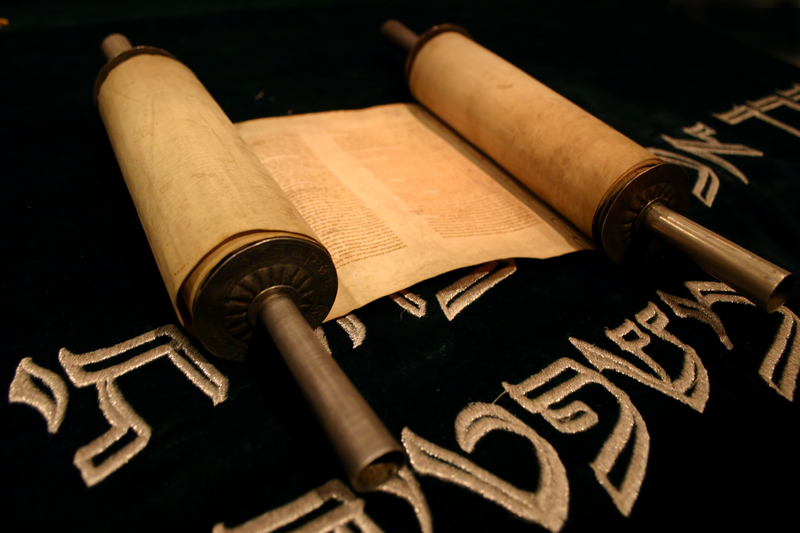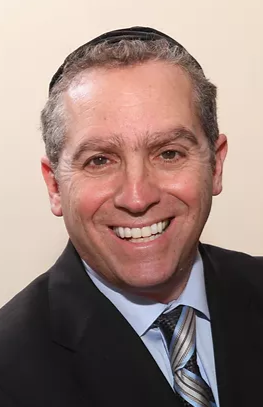
At the end of last week’s Parasha, after Pharaoh reluctantly sent B'nai Yisrael from Egypt, Moshe instructs the people (13:14):"And it shall be when your son will ask you at some future time, What is this? You shall say to him, With a strong hand Hashem removed us from Egypt from the house of bondage". From that time until today, every Mitzvah we are commanded to do and every holiday that we celebrate will be reminders of how Hashem saved us from the grip of Pharaoh and freed us with a strong hand from slavery to become a free people!
As we read each day in the Shemah Yisrael: ani Hashem elokechem asher hotzeti etchem me’eretz mitzrayim leheyot lachem le’elokim; ani Hashem elokechem. “I am Hashem, your G-d who redeemed you from the land of Egypt to be your G-d." This text reminds us that its our obligation to pass the story of our redemption from generation to generation up until this very day!
As B'nei Yisrael are leaving Egypt, Hashem sends them on a detour in order to bypass the land of the Philistines. This leads them to the shores of the Yam Suf. When they realized that Pharaoh's army was pursuing them, and saw that they were trapped between the sea and the Egyptian army, they began to lose faith whether Hashem will save them again. They cry out to Hashem: “Is it because there are no graves in Egypt that you have taken us to die in the desert?”
Hashem responded to Moshe, mah tizak elai? "Why do you cry out to me?" Hashem instructs Moshe: "Speak to B'nai Yisrael and tell them to move forward!" According to midrash, Nachshon ben Aminadav, a prince of the tribe of Judah, was the first one to take that leap of faith and jump into the Yam Suf. Rabenu Bachiya explains that the water didn't split all at once, and therefore they were not able to see across to the other side; rather, there was a wall of water in front of them but with each step they took, the sea continued to split. Just like in life, we move forward step by step as we go through the trials and tribulations of our lives, and overcome our challenges as they come, one at a time.
Only much later in life, can we look back and see with clarity how we arrived at where we are today! We have to constantly have Emunah and Bitachon that Hashem will be there for us and guide us through our lives, as long as we continue to follow in the Derech of Hashem, even though we can't possibly see what lies ahead of us! Hashem is saying to us: mah tizak elai? Why are you crying out to me? Just take that leap of faith and have complete confidence and Emunah that Hashem is always with us!
I can remember back when I was buying my first house over thirty years ago, Rabbi Ozeri told me, "Jack, don't worry, just jump into the fire, we all did it and Hashem will help you!" Similarly, when we start a new career or a new project, we must always take that first step and move forward, and Hashem will do the rest. We have to always remember that Hashem is always with us!
The Ohr Hachayim has an amazing commentary that teaches us how we can apply these events to our everyday life. Our Rabbi’s tell us that when B'nei Yisrael reached the Yam Suf, the water did not want to split. The Yam Suf said to Hashem, "Why should I split for Moshe? I was created on the third day and Man was created on the sixth day, which makes me greater than Man." The Rabbis’s go on to explain that the Torah preceded the world and is a blueprint for this world.
When Hashem created the Sea, He made a Yisod (contract) that if a Talmid Chacham asks water to go against its nature, then the water is obligated to do so. The water protested: Moshe was not a Talmid Chacham yet because the Torah wasn't given till forty days later! Hashem replied that Moshe was on his way to receive the Torah so that he would qualify as a Talmid Chacham. The Yam Suf then listened and split for Moshe!
There are may occasions in the Torah when great men are able to perform miracles, as when Yehoshua was able to stop the sun from setting during a battle in the conquering of the land of Israel. Great Rabbi’s have also been able to bring about miraculous events that indicate the intervention of Hashem. The Baba Sali, the great Moroccan Rabbi and Kabbalist, who died about thirty years ago and whose Yartzeit was just last week, was also known to perform many miracles.
There was a story of an injured soldier in a wheelchair who couldn't walk. The Baba Sali asked the soldier: "Do you put on Tefilin or keep Shabbat?" The soldier replied in the negative, so the Baba Sali told him "Make a commitment that you'll put on Tefilin every day and keep Shabbat and I'll bless you to get up out of that wheelchair and walk on your own". The soldier agreed, and he was able to walk again. These great Rabbi’s were able to accomplish these miracles only because they had the special powers they derived from the Koach (power) of the Torah within them!
Another midrash teaches that the angels complained, "Why are you saving the Israelites and killing the Egyptians, when they both served idols? What's the difference between them, and why would you save one and not the other?" The Rabbi’s explain that Moshe was still carrying the bones of Yosef in order to bring them out of Egypt as Yosef had requested.
So when the Yam Suf saw Yosef's bones, they were a reminder that the Israelites were not like the Egyptians. Yosef Hatzadik went against his Yetzer Harah and ran away from the wife of Potifar when she tried to seduce him. So because of Yosef's Zechut, the Sea also ran away and obeyed the order to split, so that B'nei Yisrael would be able to walk through the waters and thus be rescued from the pursuing Egyptian army.
At the other end of the Yam Suf, after B’nei Yisrael had safely crossed to the other side as the Egyptian army was pursuing them, Hashem performed another miracle and caused the sea to devour and drown Pharoah’s army along with their horses and chariots. Moshe’s sister Miriam the Nevi’a gathered all the women on the shores of the Yam Suf to sing praises to Hashem in celebration of their rescue from Pharoah and his army.
In Passuk15:21 Miriam leads the song: “Sing to Hashem for He is exalted above the arrogant, having hurled horse with its rider into the sea”. The Rabbi’s tell us that the women asked Miriam, how will we, as women, get rewarded for receiving the Torah? The answer comes in the form of another question: Why were the horses punished along with the Egyptian soldiers? The Midrash answers that just as the horses died because they were accomplices in the pursuit of B’nei Yisrael, so too will the women reap the rewards as accomplices to the men who will be responsible for learning the Torah and carrying it forward throughout the generations!”
There’s an interesting connection between this week’s Parasha and the Haftarah of the week which begins with the Passuk: ”On that day, Deborah and Barak son of Abinoam sang, saying: Whether Hashem wreaks vengeance against Israel or the people dedicate themselves to Him - bless Hashem!” This song goes on to praise Hashem for 30 stanzas ending with the line “So may all Your enemies be destroyed, Hashem. And let those who love Him be like the powerfully rising sun”. These two songs from two great prophetesses Miriam and of Deborah eloquently display our dedication and reverence to the Almighty Hashem! This connection also has a very personal connection for my own family as my daughter Ilana and her husband Manny Haber were blessed this past Shabbat with a beautiful baby daughter named appropriately after her grandmother Deborah!
May we all have Emunah in Hashem that He’s always with us throughout our lives each and every step of the way even though we may not be able to see yet the light at the end of the tunnel. May we also emulate Nachshon ben Aminadav by having the courage to take that leap of faith in our lives with our families and in our careers, with the faith that Hashem will always be there for us as long as we have the Emunah to believe! May we always continue to sing praises to Hashem as Miriam, Deborah and so many other great woman throughout our history have always done!
Parasha perspective By Jack E. Rahmey from the teachings and guidance of Rabbi Amram Sananes.








